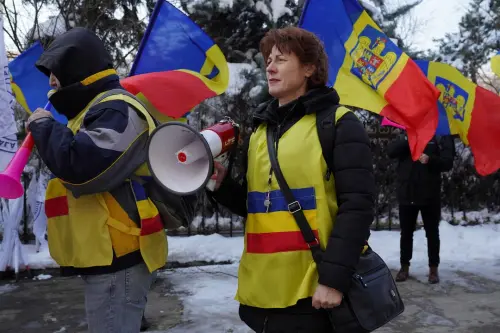In Bucharest on February 28, Reuters reported that the government's efforts to reduce Romania's persistent budget deficit and prevent a downgrade in ratings are sparking social unrest that may bolster support for a far-right, pro-Moscow candidate in the upcoming presidential election rerun in May.
The pro-European ruling coalition in Romania is cutting back on spending that had reached nearly one-fifth of pre-pandemic levels as the new election approaches.
As the authorities deliberate on the likelihood of the May rerun election and the leading candidate's stance gains traction in polls, tensions rise over the government's cost-cutting measures affecting public sector employees and pensioners.
Workers impacted by the austerity measures express frustration, with some highlighting salary reductions and the suspension of certain services and subsidies. A sense of discontent among various sectors of the economy, from public transport to power grid workers, surfaces, potentially leading to strikes and further challenges.
Moreover, concerns linger over weaker economic growth, political uncertainties, and the cancellation of the previous election by investors and rating agencies, hinting at potential risks ahead for Romania's economy and financial stability.
The government seeks to stabilize the economy and reduce the deficit through expenditure cuts rather than tax increases, aiming to maintain investor confidence while addressing mounting fiscal pressures and international debt obligations. Economic challenges persist, with the need for sustainable fiscal policies and structural reforms becoming increasingly urgent to navigate the complexities of Romania's financial landscape.
